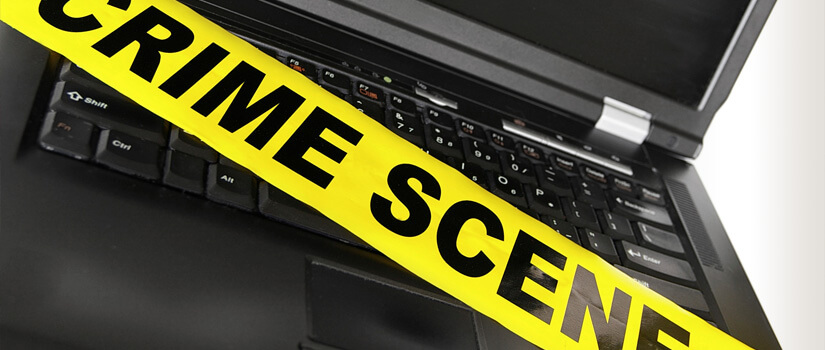For Emergency dial 1 9 2

High-tech crime includes a set of criminal offenses where computers, computer networks, computer data, as well as their products in material and electronic form appear as an object of execution and as a means of committing a criminal offense.
This definition includes a large number of abuses of information technologies, as well as the area of abuses in broadcasting technologies. Thus, there are different crimes where computers appear as a means of execution (Computer Related Crime) and as an object of execution (Computer Crime), as well as crimes in the manner of which elements of illegal use of the Internet appear.
The number and types of crimes in the field of high-tech crime, as well as the economic damage caused by the commission of these crimes, are very difficult to estimate. However, the number of crimes committed and the economic damage that has been registered so far from year to year is constantly increasing. The ways of committing crimes, due to the very nature of modern information technologies, are very diverse and increasingly sophisticated.
Remember:
Your kids may know more about technology than you do, but you know more about life.
They should, in this area as well, learn from you how to use computers safely.
High-tech crime includes a set of crimes against computer data security:
In addition to the aforementioned criminal offenses, this area also includes criminal offenses against intellectual property, property and legal transactions in which computers, computer networks, computer data, as well as their products in material or electronic form appear as objects or means of committing criminal offenses.
In accordance with this legal definition, the field of high-tech crime also includes criminal offenses where computers and computer networks appear as a means of committing criminal offenses of fraud, abuse of payment cards on the Internet, abuse of e-commerce and banking, abuse of children for pornographic purposes on the Internet (so-called child pornography), hate speech on the Internet (spreading national, racial, religious hatred and intolerance, etc.).
The most common forms of committing crimes on the Internet are computer fraud related to auction websites (electronic stores), compromise and misuse of payment cards, "Nigerian" fraud, DDoS attacks.
Identity theft through the misuse of information technology has become one of the most common activities of perpetrators of criminal acts with the expansion of the use of the Internet. The use of information technology by users who are not sufficiently aware of the dangers that await them when using personal data that make up their identity on the Internet, has led to the creation of a large amount of personal data that is easily accessible to perpetrators.
IT IS VERY IMPORTANT TO KNOW
Content such as keygene, crack and many others that can be downloaded for free from the Internet are very often infected with some type of malware, and sometimes behind their installation is actually hidden malware itself, which the user who "downloaded" it from the Internet does not knowing what it's all about, thus unknowingly compromising your computer.
Regardless of your experiences and attitudes, children and young people inevitably come into contact with computers and communication technologies. Informatics is also a part of the school program. It is important to know that your children will use computer technology and that it is difficult and even harmful for their development to ban them from using mobile phones, computers and the Internet.
Experience shows that parental supervision and monitoring of children's activities on the Internet are an important step in the protection of children and youth, but also that this type of protection alone is not enough.
Parents are not in a position to constantly monitor their children's activity on the Internet. Children need to be taught to use computers in a safe way, not to "take them by the hand". Just as we teach children how to deal with disturbing and unpleasant events in everyday life and how to recognize and avoid danger on the street and in their surroundings. It is important to teach them how to use the Internet safely and how to recognize the potential dangers and avoid risky behaviors, and to teach children and young people about taking responsibility for their behavior and the consequences of certain actions, which affect themselves and others. in contact.
It is necessary to respect their independence, interests and activities in accordance with their age, as well as to use messages adapted to their age. Chat, blog, forum and similar places on the Internet, where children and young people can exchange opinions and communicate, are very popular, and therefore they are attractive to people who want to abuse their trust on the Internet. Peer abuse most often includes threatening messages, insults and spreading rumors, blackmail that one or more children send to another child.
Adult abuse most often involves misrepresentation and manipulation in order to persuade children and young people to induce unwanted behaviors (usually sexual).
If you find out that your child has been exposed to violence online, you need to take the following steps:
You should talk to your children about computer ethics, agree on rules of conduct on the Internet and most importantly, define the consequences of violating those rules.
